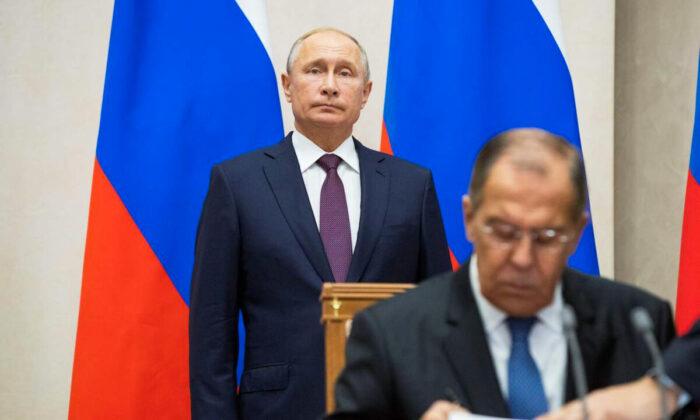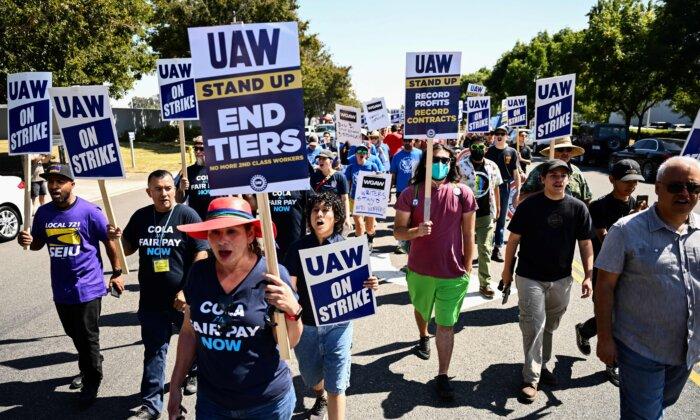The United States on late Feb. 25 imposed sanctions on Russian President Vladimir Putin, Russian Minister of Foreign Affairs Sergei Lavrov, and other members of Russia’s Security Council, marking the latest U.S. actions against Russia following previous rounds of sanctions announced earlier this week since Russia invaded Ukraine.
The Treasury Department noted that it is “exceedingly rare” for it to designate a head of state, and that Putin now joins “a very small group that includes despots such as Kim Jong Un, Alyaksandr Lukashenka, and Bashar al-Assad.”
Treasury separately designated 11 members of the Russia Security Council in previous actions.
Treasury Secretary Janet Yellen said in a statement the United States seeks “to ensure Russia pays a severe economic and diplomatic price for its further invasion of Ukraine,” and is “prepared to impose further costs on Russia” if necessary.
The sanctions mean that “all property and interests in property of the individuals above that are in the United States or in the possession or control of U.S. persons are blocked and must be reported to [the Office of Foreign Assets Control (OFAC)].”
“In addition, any entities that are owned, directly or indirectly, 50 percent or more by one or more blocked persons are also blocked,” it announced.
“All transactions by U.S. persons or within (or transiting) the United States that involve any property or interests in property of designated or otherwise blocked persons are prohibited unless authorized by a general or specific license issued by OFAC, or otherwise exempt. These prohibitions include the making of any contribution or provision of funds, goods, or services by, to, or for the benefit of any blocked person and the receipt of any contribution or provision of funds, goods, or services from any such person.”






Friends Read Free